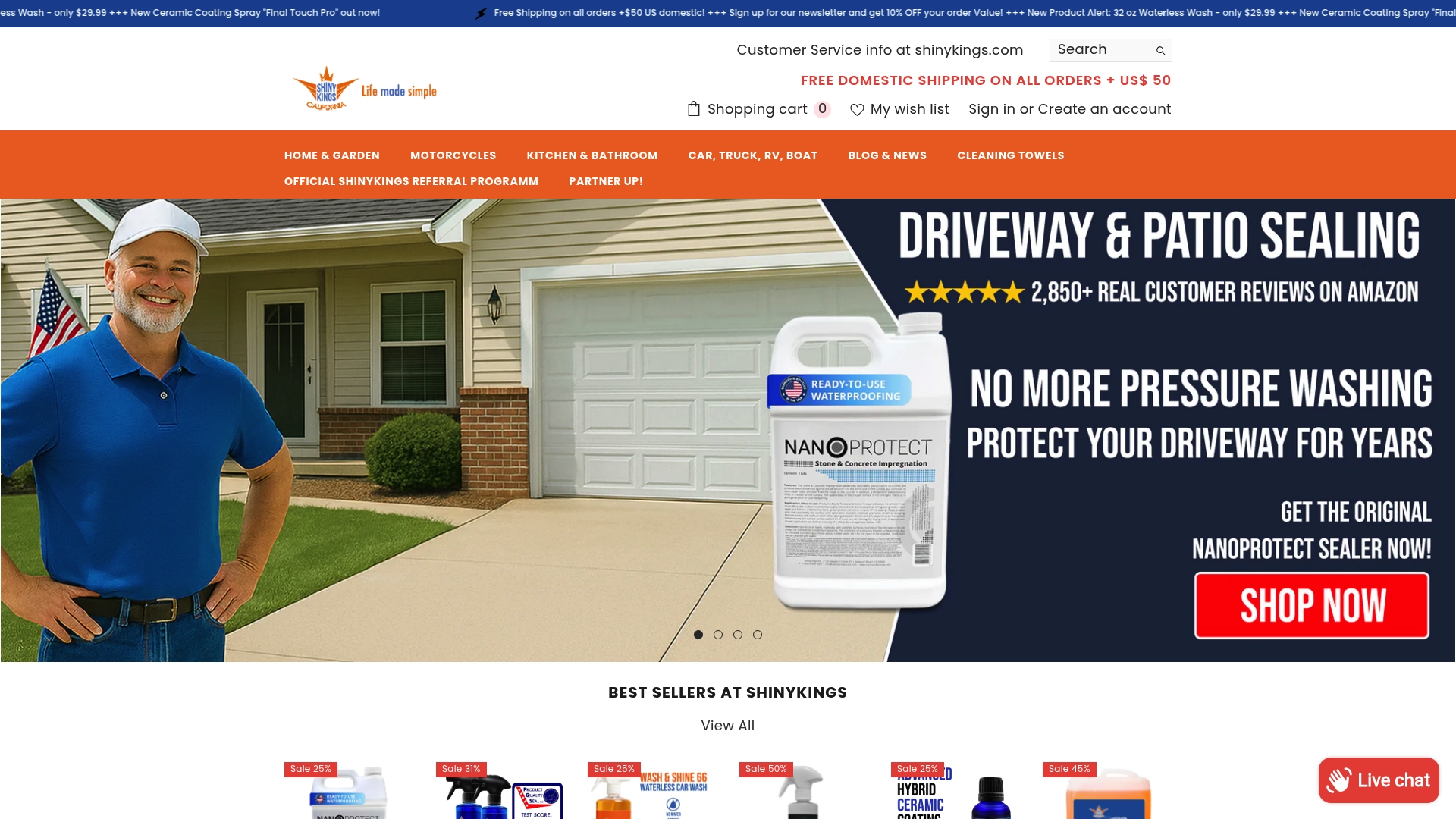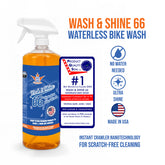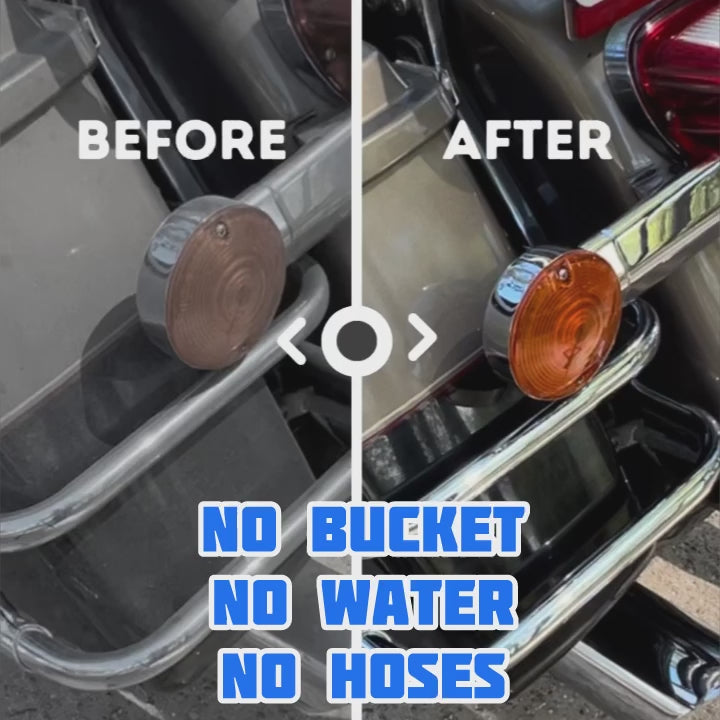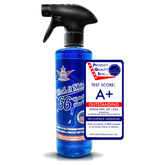What is the best concrete Sealer to seal your driveway? Explained
Millions of driveways crack and crumble before their time because most homeowners skip one critical step: sealing the concrete. But wait. The true surprise is not how easy sealing is or that it adds shine. Properly sealed driveways can last up to 300 percent longer than unsealed ones. That single choice could save you thousands over the years while keeping your curb appeal strong.

Table of Contents
- Understanding Concrete Sealers: What Are They?
- The Importance of Sealing Your Driveway: Why It Matters
- How Concrete Sealers Work: The Science Behind Protection
- Key Factors to Consider When Choosing a Concrete Sealer
- Comparing Different Types of Concrete Sealers for Driveways
Quick Summary
| Takeaway | Explanation |
|---|---|
| Sealing concrete prevents structural damage. | Moisture and chemicals can deteriorate unsealed concrete, leading to cracks and costly repairs. |
| Choose the right type of sealer. | Penetrating sealers offer invisible protection, while film-forming sealers enhance appearance but require maintenance. |
| Sealing extends driveway life by 300%. | Proper sealing minimizes wear and prevents the need for repairs, saving money long-term. |
| Consider environmental conditions before sealing. | Factors like climate, UV exposure, and chemical contact affect sealer performance and longevity. |
| Nanomaterial sealers improve durability. | Advanced sealers with materials like graphene oxide offer superior water repellency and protection against damage. |
Understanding Concrete Sealers: What Are They?
Concrete sealers are specialized protective coatings designed to shield concrete surfaces from moisture, environmental damage, and premature deterioration. According to the Federal Highway Administration, these critical solutions create a barrier that prevents water, chemicals, and other harmful substances from penetrating concrete’s porous structure.
The Science Behind Concrete Protection
At its core, a concrete sealer works by blocking microscopic pathways within concrete that typically allow water and contaminants to enter. Concrete appears solid to the naked eye, but it actually contains numerous tiny interconnected capillaries and pores. These pathways can rapidly absorb moisture, leading to potential structural damage, cracking, and accelerated wear.
Two primary sealer technologies exist to address these vulnerabilities:
- Penetrating Sealers: These advanced solutions chemically react with concrete, forming a hydrophobic barrier deep within the material’s microstructure
- Film-Forming Sealers: Create a protective surface layer that blocks external moisture and contaminants
- Hybrid Sealers: Combine penetrative and surface protection technologies
Types and Performance Characteristics
Each concrete sealer type offers unique advantages tailored to specific environmental conditions and surface requirements. Penetrating sealers like silane and siloxane compounds provide long-lasting protection without changing concrete’s visual appearance. Film-forming sealers, often acrylic or epoxy-based, can enhance surface aesthetics while providing robust protection.
Research from Washington State University highlights emerging nanomaterial-enhanced sealers that dramatically improve concrete durability. These innovative solutions incorporate advanced materials like graphene oxide, offering up to 75% improved water repellency and significantly reduced salt damage compared to traditional sealers.
Understanding concrete sealers means recognizing them as more than simple protective coatings. They represent a critical technological intervention that extends concrete surfaces’ functional lifespan, reduces maintenance costs, and preserves structural integrity across residential, commercial, and infrastructure applications.
The Importance of Sealing Your Driveway: Why It Matters
Your concrete driveway represents a significant investment in your property, and sealing it is not just a maintenance task but a crucial protective strategy. According to the University of Wisconsin-Extension, sealing provides critical defense against environmental damage that can dramatically reduce your driveway’s lifespan.
Protecting Against Environmental Damage
Concrete driveways are constantly exposed to harsh environmental conditions that gradually erode their structural integrity. Moisture, temperature fluctuations, UV radiation, and chemical exposures create microscopic stress points that can lead to significant damage over time. Unsealed concrete acts like a sponge, absorbing water, road salts, oil, and other potentially destructive substances.
Key environmental threats include:
- Freeze-thaw cycles that cause expansion and contraction
- UV radiation that causes surface degradation
- Chemical exposure from vehicle fluids and deicing agents
- Moisture penetration leading to internal structural weakening
Long-Term Cost Savings and Performance
Investing in a high-quality concrete sealer represents a strategic financial decision. Properly sealed driveways can extend surface life by 300% compared to unsealed surfaces. The minimal upfront cost of sealing prevents exponentially more expensive repair or replacement scenarios.
Sealing offers multiple performance benefits:
- Prevents moisture-related cracking and spalling
- Reduces surface staining from oil, grease, and organic materials
- Minimizes concrete surface erosion
- Enhances overall aesthetic appearance
- Provides a protective barrier against chemical penetration
Beyond protection, a sealed driveway maintains its visual appeal, contributing to your property’s curb appeal and potential market value. Professional-grade sealers create a uniform, clean surface that resists weathering and maintains its original color and texture.
Below is a table that summarizes the key environmental threats to concrete driveways and how sealing addresses each challenge, as explained in the article. This can help readers quickly understand the protective value provided by sealers in different scenarios.
| Environmental Threat | Consequence for Unsealed Concrete | How Sealing Helps |
|---|---|---|
| Freeze-thaw cycles | Cracking, spalling, structural weakening | Blocks moisture entry, prevents damage |
| UV radiation | Surface degradation, fading | Creates barrier against sunlight |
| Chemical exposure | Staining, chemical breakdown | Blocks chemicals/oils from penetrating |
| Moisture penetration | Internal weakening, accelerated wear | Hydrophobic barrier limits absorption |
| Surface staining (oil, etc) | Unsightly stains, difficult cleaning | Resists stains, maintains appearance |
Ultimately, concrete sealing transforms a simple surface into a resilient, long-lasting infrastructure component. By understanding and implementing proper sealing techniques, homeowners can convert a routine maintenance task into a strategic investment in their property’s longevity and performance.
How Concrete Sealers Work: The Science Behind Protection
According to the Federal Highway Administration, concrete sealers are sophisticated chemical solutions designed to interact with concrete’s molecular structure, creating robust defense mechanisms against environmental degradation. The science behind concrete protection involves complex interactions between sealer compounds and concrete’s intricate microstructure.
Molecular-Level Interaction
Concrete is a porous material composed of cement, water, and aggregate materials. These components create an interconnected network of microscopic channels and capillaries that can absorb moisture, chemicals, and contaminants. Concrete sealers function by either penetrating these pathways or creating an impermeable surface barrier.
Two primary molecular protection mechanisms exist:
- Chemical Bonding: Penetrating sealers chemically react with concrete’s calcium compounds
- Surface Coating: Film-forming sealers create a physical barrier preventing external substance intrusion
- Hydrophobic Transformation: Advanced sealers modify concrete’s surface tension to repel water molecules
Performance Characteristics and Protection Zones
Sealers operate across multiple protection zones within concrete’s structure. Penetrating sealers like silane and siloxane compounds migrate deep into concrete, forming internal water-repellent barriers that block moisture at its entry points. These advanced solutions create a permanent molecular shield that prevents water absorption without altering concrete’s visual appearance.
Film-forming sealers, typically acrylic or epoxy-based, establish a protective layer on concrete’s surface. This external barrier blocks UV radiation, chemical contaminants, and mechanical wear. By creating a uniform protective membrane, these sealers prevent surface degradation and maintain concrete’s structural integrity.
The effectiveness of concrete sealers depends on their ability to address specific environmental challenges. Different sealer formulations are engineered to combat unique threats such as freeze-thaw cycles, salt exposure, chemical spills, and UV radiation. Understanding these molecular-level interactions transforms concrete sealing from a simple maintenance task into a sophisticated materials science intervention.

Key Factors to Consider When Choosing a Concrete Sealer
According to the Federal Highway Administration, selecting the right concrete sealer requires careful evaluation of multiple critical factors that extend far beyond surface-level appearance. The selection process involves understanding your specific environmental conditions, surface requirements, and long-term performance expectations.
Environmental and Surface Compatibility
Concrete sealers are not universal solutions but specialized protective technologies tailored to specific conditions. The effectiveness of a sealer depends on its compatibility with your concrete’s age, composition, and exposure environment. Factors like temperature range, moisture levels, UV radiation intensity, and potential chemical exposures dramatically influence sealer performance.
Key environmental considerations include:
- Geographical climate zone and temperature fluctuations
- Frequency of freeze-thaw cycles
- Potential exposure to road salts and deicing chemicals
- Direct sunlight and UV radiation intensity
- Proximity to industrial or marine environments
Performance Characteristics and Application Requirements
Selecting the optimal concrete sealer demands a comprehensive understanding of performance metrics. Different sealer technologies offer varying levels of protection, aesthetic outcomes, and application complexity. Penetrating sealers provide invisible protection and maintain concrete’s natural appearance, while film-forming sealers create a visible protective layer that can enhance or alter surface aesthetics.
Critical performance factors to evaluate:
- Water repellency percentage
- Expected lifespan before reapplication
- Resistance to chemical and mechanical wear
- Application difficulty and required surface preparation
- Compatibility with existing concrete treatments
Professional-grade concrete sealers represent a strategic investment in your property’s infrastructure. By meticulously analyzing environmental conditions, surface characteristics, and performance requirements, homeowners can select a sealer that provides optimal protection, extends concrete lifespan, and maintains aesthetic appeal.
Comparing Different Types of Concrete Sealers for Driveways
According to the Federal Highway Administration, concrete sealers are not one-size-fits-all solutions but specialized protective technologies with distinct performance characteristics. Understanding the nuanced differences between sealer types is crucial for making an informed decision that matches your specific driveway requirements.
Penetrating Sealers: Invisible Protection
Penetrating sealers represent an advanced molecular protection strategy that operates beneath the concrete’s surface. These sophisticated solutions chemically react with concrete’s internal structure, creating a water-repellent barrier without altering the surface’s visual appearance. Silane and siloxane-based penetrating sealers offer deep, long-lasting protection by blocking moisture at its microscopic entry points.
Key advantages of penetrating sealers include:
- Maintains original concrete color and texture
- Provides invisible protection against water and chemical intrusion
- Allows concrete to breathe and release moisture vapor
- Minimal surface alteration
- Excellent for preserving decorative or stamped concrete surfaces
Film-Forming Sealers: Surface-Level Protection
Film-forming sealers create a visible protective membrane on concrete’s surface, offering a different approach to driveway protection. Typically acrylic or epoxy-based, these sealers establish a physical barrier that blocks moisture, UV radiation, and surface contaminants. They can enhance concrete’s aesthetic appeal by providing a glossy or wet-look finish.
Key characteristics of film-forming sealers include:
- Visible surface enhancement
- Potential for color intensification
- Creates a protective glossy or matte finish
- More susceptible to wear from vehicle traffic
- Requires periodic reapplication
Choosing between penetrating and film-forming sealers depends on your specific environmental conditions, aesthetic preferences, and maintenance capabilities. Homeowners must carefully evaluate their driveway’s unique requirements, considering factors like climate, traffic exposure, and desired visual outcome to select the most appropriate sealer technology.
To help you choose the best concrete sealer for your driveway, the following table compares the key characteristics, advantages, and limitations of penetrating and film-forming sealers as discussed in the article.
| Type of Sealer | Key Characteristics | Advantages | Limitations |
|---|---|---|---|
| Penetrating Sealers | Chemically react with concrete, form internal barrier | Invisible protection, preserves look, durable | Does not enhance surface appearance |
| Film-Forming Sealers | Create visible layer on surface | Enhances gloss/appearance, UV protection | May require reapplication, can wear out |
| Hybrid Sealers | Combine penetrative and surface protection technologies | Dual protection, can address multiple threats | May be more costly or complex |

Protect Your Driveway With the Next Generation of Concrete Sealers
You have learned that unsealed driveways are vulnerable to water damage, oil stains, and weathering. The article highlighted how film-forming and penetrating sealers can make a dramatic difference, helping you prevent cracks, fading, and the frustration of early repairs. If you want your driveway to last longer and look better, you need a solution that goes beyond basic protection.

Ready to stop worrying about your drive and choose the best sealer for real results? Visit Shiny Kings to discover our world-unique concrete sealers, powered by cutting-edge nanotechnology and innovative chemistry. Our products are designed to penetrate deep and guard your surfaces against even the toughest threats. Do not wait until your driveway needs expensive fixes. Act now and get the unbeatable protection trusted by homeowners who expect more. See the full range and get the right concrete sealer for your needs at Shiny Kings Concrete Sealers.
Frequently Asked Questions
What type of concrete sealer is best for my driveway?
The best type of concrete sealer for your driveway depends on your specific needs. Penetrating sealers provide invisible, deep protection against moisture and are ideal for decorative concrete, while film-forming sealers offer a visible protective layer that enhances appearance but may require more maintenance.
How often should I apply concrete sealer to my driveway?
It’s generally recommended to reapply concrete sealer every 1 to 3 years, depending on the type of sealer used, local climate conditions, and the amount of traffic your driveway receives. Regular inspections can help determine the best reapplication schedule.
Can I use penetrating sealers on a stamped concrete driveway?
Yes, penetrating sealers are suitable for stamped concrete driveways as they maintain the original color and texture of the surface while providing moisture protection without creating a surface film that could alter the look.
What are the benefits of sealing a concrete driveway?
Sealing a concrete driveway offers numerous benefits, including preventing moisture-related cracking, reducing surface staining, enhancing curb appeal, extending the lifespan of the driveway by up to 300%, and protecting against adverse weather conditions and chemicals.




